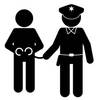Why We Should Concentrate On Helping Nature Flashcards
(12 cards)
verb : SUCCEED [I]
serpilmek, büyümek, gelişmek
a ——-ing tourist industry
Why we should concentrate on helping nature and technology to ——– and stop seeing them as sparring partners
HOLD
bir şeyi havada sallamak; dikkat çekmek/işaret vermek için sallamak

- flourish
verb:

dostane tartışmak, kızmadan kavga etmeden münakaşa etmek
Why we should concentrate on helping nature and technology to flourish and stop seeing them as —–ring partners.
- spar
verb : NOT SEE to prevent something from being seen or heard
gizlemek, gözden ırak tutmak, örtmek; duyulmasını/görülmesini önlemek
[often passive] The moon was partially ——-d by clouds.
Sunsets ——- by selfies.
NOT UNDERSTAND to make something difficult to understand
anlaşılmaz hâle getirmek; anlaşılmasını güçleştirmek;
He deliberately ——d details of his career in the army.

- obscure
noun : government taxes that must be paid on some things that are made or sold in a particular country

üretim/tüketim vergisi
Words such as ‘acorn’, ‘adder” and “willow” —–d from the Oxford Junior Dictionary to make way for ‘broadband’, ‘analogue’, and ‘cut and paste’
- excise
verb : to say that something is wrong or that you are annoyed about something

şikayet etmek, yakınmak, dertlenmek
Lots of people have ——–ed about the noise. [+ that]
We —— about the colonisation of our wild places with wifi, yet declare internet access to be a human right.
- complain
verb: COOK [T] to cook something, especially an egg without its shell, by putting it into liquid that is gently boiling
(yumurta kabuğunu kırıp) suda pişirmek
ANIMALS [I, T] to illegally catch or kill animals, especially by going onto land without the permission of the person who owns it
kaçak avlanmak; özel arazide izinsiz avlanmak
We despair about ——ing while helping the culprits track down rare animals with our social media posts.
PERSON [I, T] to persuade someone to leave a company or team in order to work or play for yours
(müşteri, çalışan) ayartmak, kandırmak; ikna etmek
They can —– experienced people easily because they offer higher salaries.

- poach
noun : PERSON someone who has done something wrong
suçlu, suç işlemiş kişi
We despair about poaching while helping the —-s track down rare animals with our social media posts.
THING something that is responsible for a bad situation
neden, sebep
In many of these illnesses, stress is the main —–.

- culprit
noun : NEED [U, no plural] B2 a need for something to be sold or supplied
talep
There’s an increasing ——- for cheap housing.
We dream of relaxing on tranquil Maldivian islands, but —— unsustainably cheap flights to get us there.
REQUEST [C] B1 a strong request
istek, talep
They received a final —— for payment.

- demand
noun : SHIP formal a ship or large boat
gemi, tekne
CONTAINER old-fashioned a container for liquids kap → See also blood ——-
Now, from cooking —–s to virtual reality headsets, technology is simply a set of strategies our species has developed in order to cope with being self-conscious creatures on a chaotic and often hostile planet.

- vessel
verb : to deal quite successfully with a difficult situation

başa çıkmak, halletmek, altından kalkmak
How do you —– with stress?
Now, from cooking vessels to virtual reality headsets, technology is simply a set of strategies our species has developed in order to —– with being self-conscious creatures on a chaotic and often hostile planet.
- cope
noun : a very excited and happy feeling

neşe, coşku, heyecan
So we find ourselves stuck between a rock and a MySpace, and all too often we sacrifice our native habitat for the short-term ——– of change and short-term resolution of economic and political problems.
- exhilaration
verb : to cause someone to no longer have a friendly relationship with another person or other people:
Her lifestyle ——–d her from her parents.
But although many of our digital inventions serve to ——- us from the world they were created to enrich, technology and nature are also continually cross-pollinating in powerfully positive ways
to cause you to feel that you do not understand someone or something, or do not have any connection with him, her, or it:
Cultural changes can ——– the reader from old texts.

- estrange


